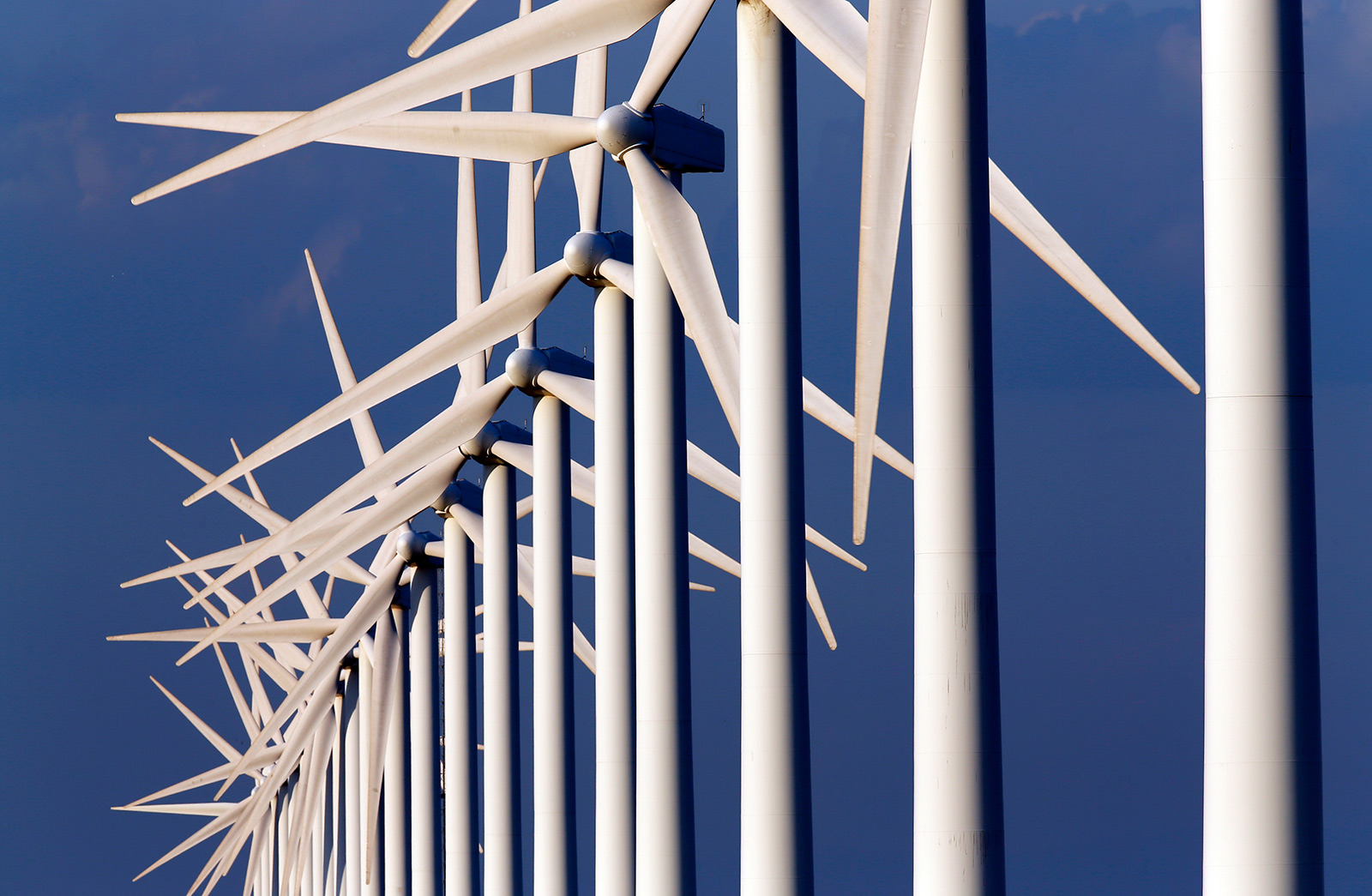There’s nothing inherently liberal about renewable energy. You could be waaaay out there on the fringes of conservative thought — you could want to kill Social Security and Medicare, zero out the tax rate, and make children pay to go to elementary school — and you could still be a fan of solar panels and wind turbines.
That said, clean energy has a reputation for being unpopular with conservatives — especially if they’re men, and old. Conservatives with political power have also reliably backed legislation that cuts the cost of oil and gas drilling, which makes it hard for renewable technology to get a foothold.
According to a recent poll backed by climate-conscious Republicans, though, conservatives — the voters, not the politicians — are actually bigger fans of renewables than their political record suggests.
Among the poll’s findings:
- 72 percent of the responders who identified as Republican said that they “support accelerating the development and use of clean energy.” 68 percent of the people who identified as “Conservative Republicans” did the same.
- When the Republicans who said they were in favor of accelerating the growth of clean energy in America were asked why, they were most likely to choose the phrases “so that Americans could have cleaner healthier air and less pollution at home” (91 percent of those surveyed agreed); “so that American innovation can create economic growth and jobs at home” (89 percent agreed); and “so that America is less dependent on energy from the Middle East” (88 percent agreed).
- Reasons they were slightly less into, but still enthusiastic about: Being a global leader on environmental issues (83 percent); being ahead of the curve for an “inevitable transition” away from carbon-emitting energy (82 percent); being better than China at innovation (81 percent); and developing a decentralized grid, so that when terrorists attack, they will be bummed at how hard it is to destroy America’s electrical grid (80 percent).
- Policies they liked: Giving homeowners with rooftop solar the ability to sell their extra power back to the grid (89 percent), and banning price structures that force solar panel owners to pay a large monthly fee in order to connect to the grid (85 percent).
- Policies they liked a little less, but were still into: Requiring utilities with a monopoly in a particular market to offer at least one source of renewable energy (80 percent), and increasing basic funding research into clean energy technology (71 percent).
- Policies conservatives still liked, but even less than the previous ones: Requiring power plants to pay a fee for how much carbon they emit, and returning that fee to consumers to offset their energy bills (68 percent), and increasing tax incentives for solar and wind, but just for five years (60 percent).
- Policies conservatives were not actually in favor of but come pretty darn close: Expanding the use of nuclear power in the United States (49 percent).
Are there caveats to these results? You bet. This is a telephone poll of 1,200 registered voters, in which particular care was taken to make sure that at least 500 people were Republicans. The company that did the poll seems to have done a fairly good job; people who agreed to be polled are fairly well-distributed in terms of age and political leanings. But the poll was commissioned by a group with an agenda — the ClearPath Foundation, which was created by North Carolina businessman (and self-described Christian conservative) Jay Faison in order to build support for “market-driven solutions on clean energy issues.”
The fact that some conservatives actually like renewable energy is already well-documented. Like farmers, for example — many of whom hear this idea of putting wind turbines and solar panels across America’s rural areas and start seeing dollar signs. And the Pew polls have shown a slight but perceptible tilt overall in favor of renewables over the last eight years. It very well could be that there is something alluring in the phrasing of ClearPath’s poll that has captivated even more conservative pollees.
Faison is planning to spend about $175 million to back this idea of actually doing something on climate change for the 2016 election. The notoriously anti-climate-action Koch brothers have announced that they plan to spend about $900 million during the same time period. Presumably not all of that $900 million will be focused exclusively on keeping the world safe for oil and gas extraction. Still: Faison is up against some formidable opposition.
This research is best understood as a move in that game: It’s been put out into the world in the hopes of showing candidates that they could fight climate change and win over conservatives at the same time.




